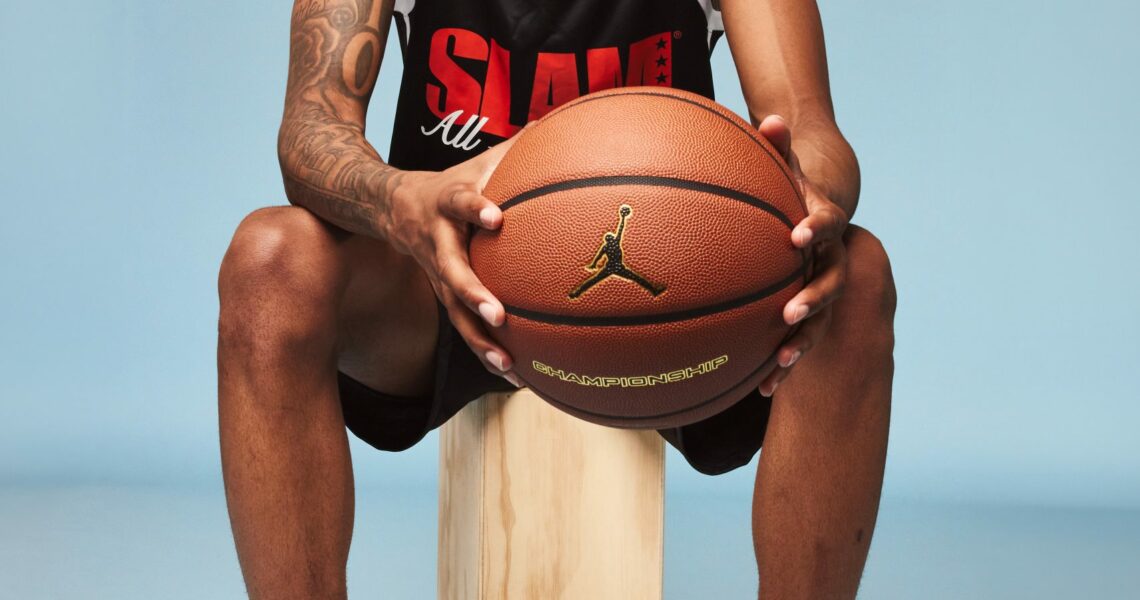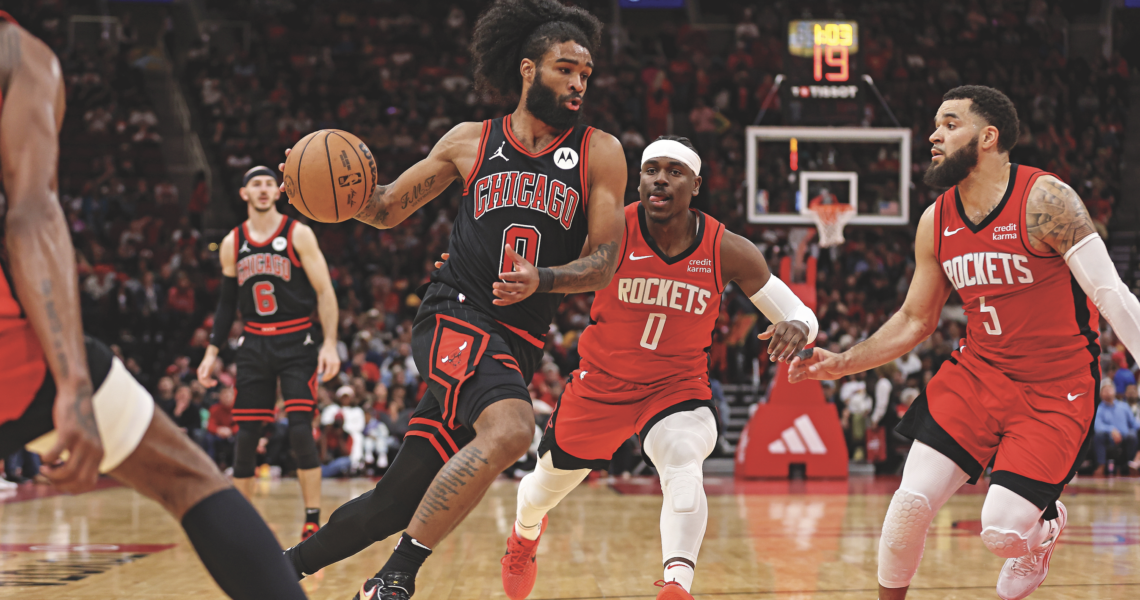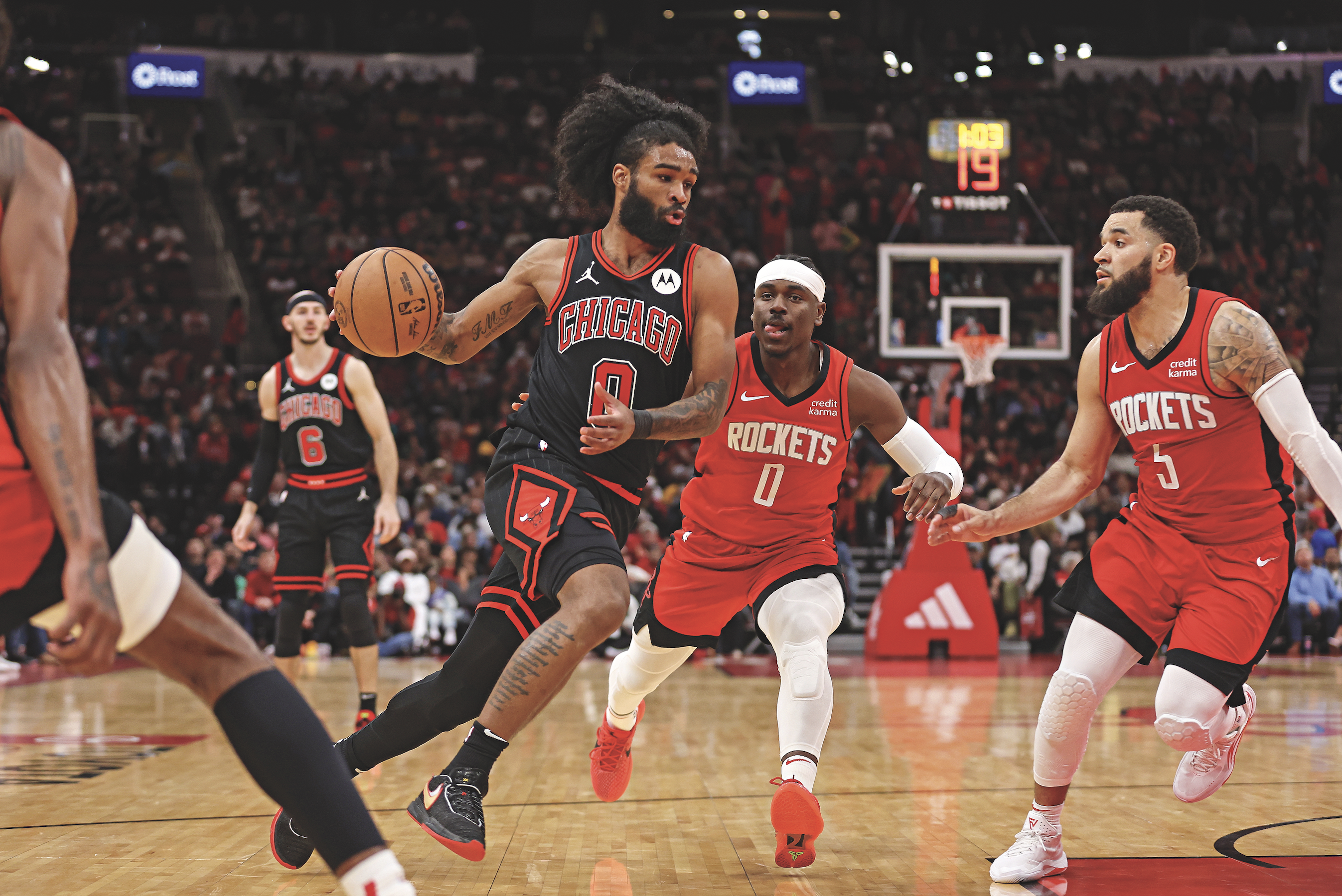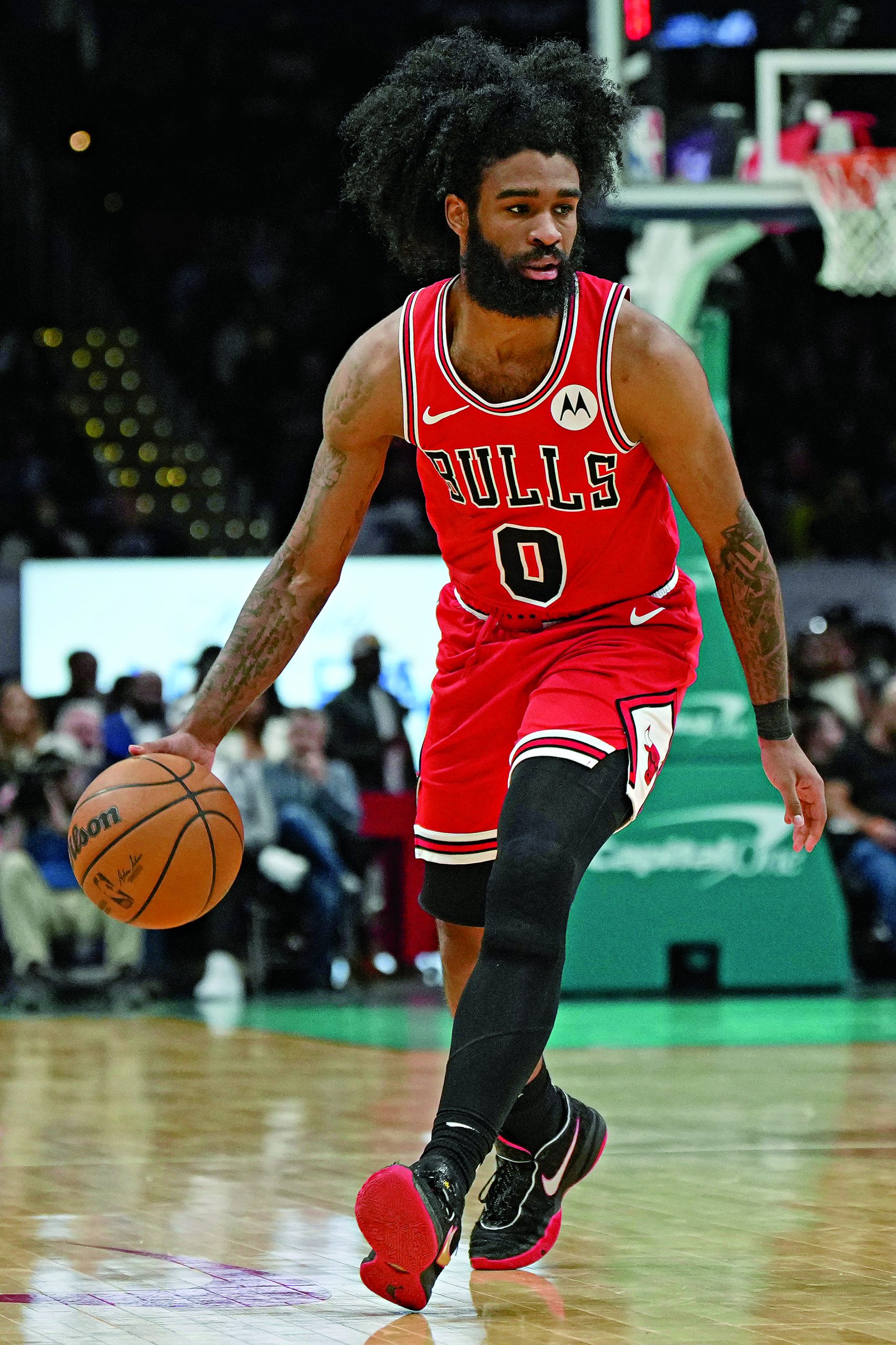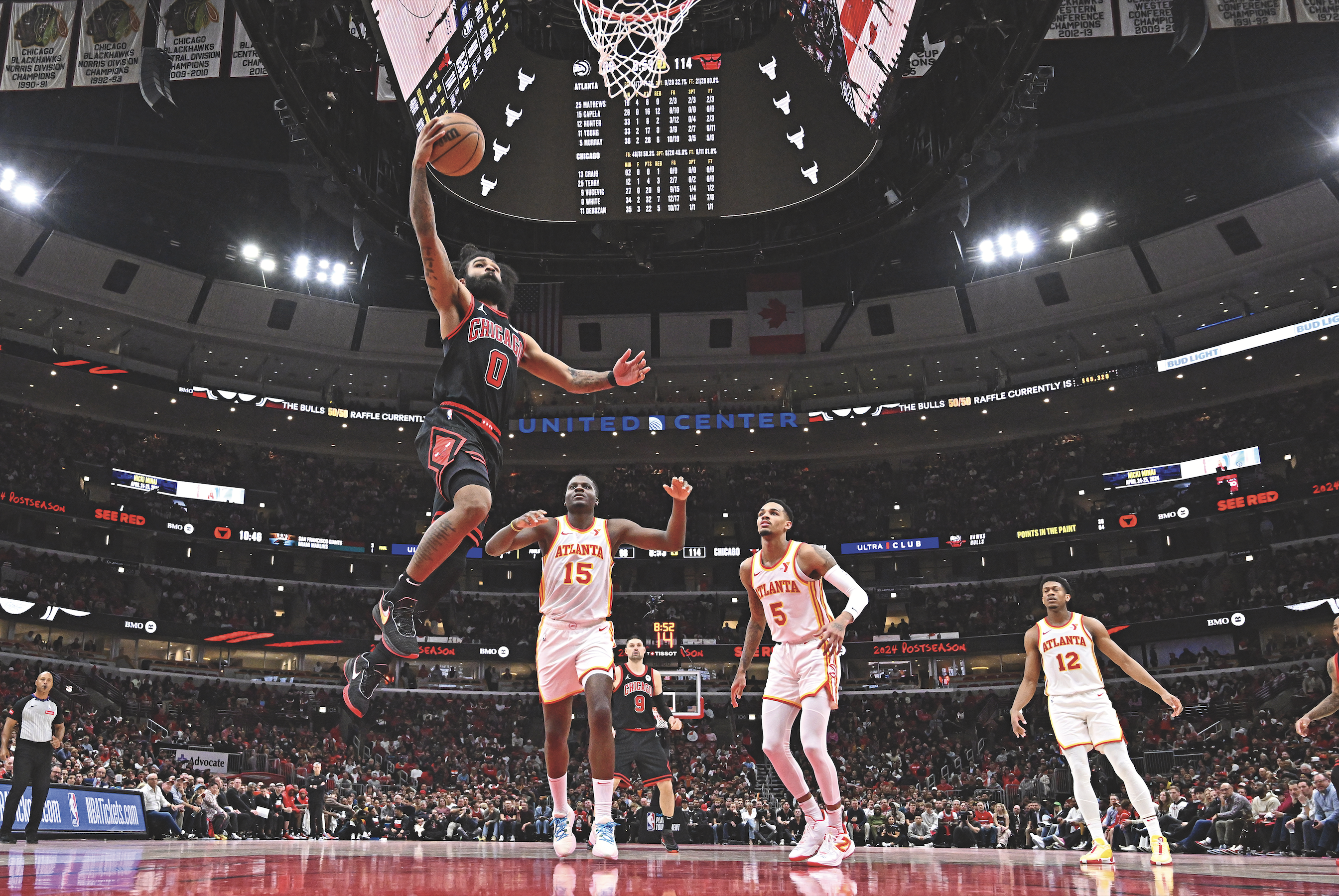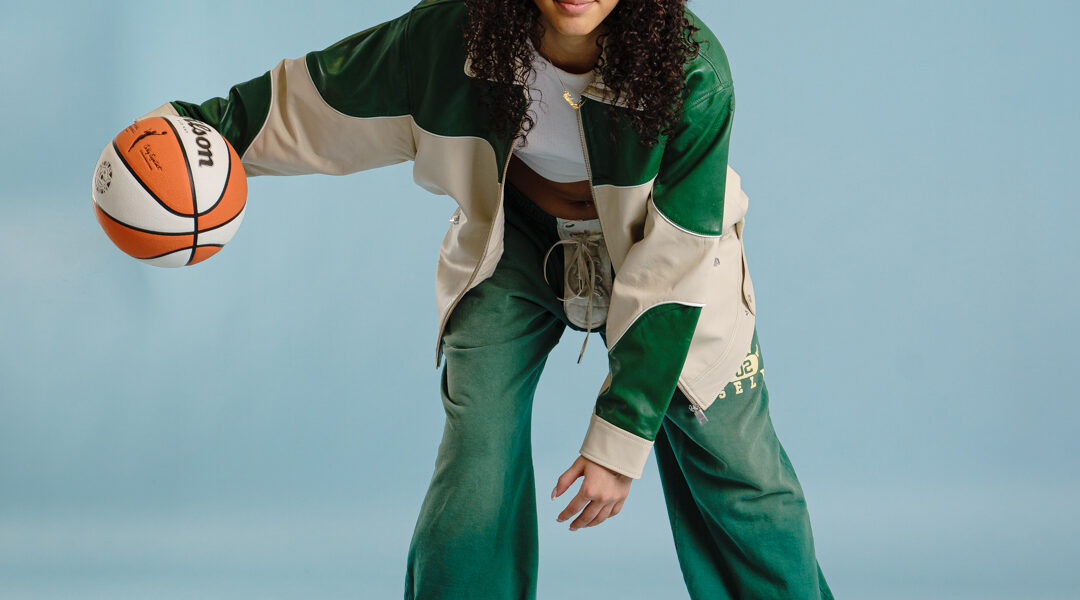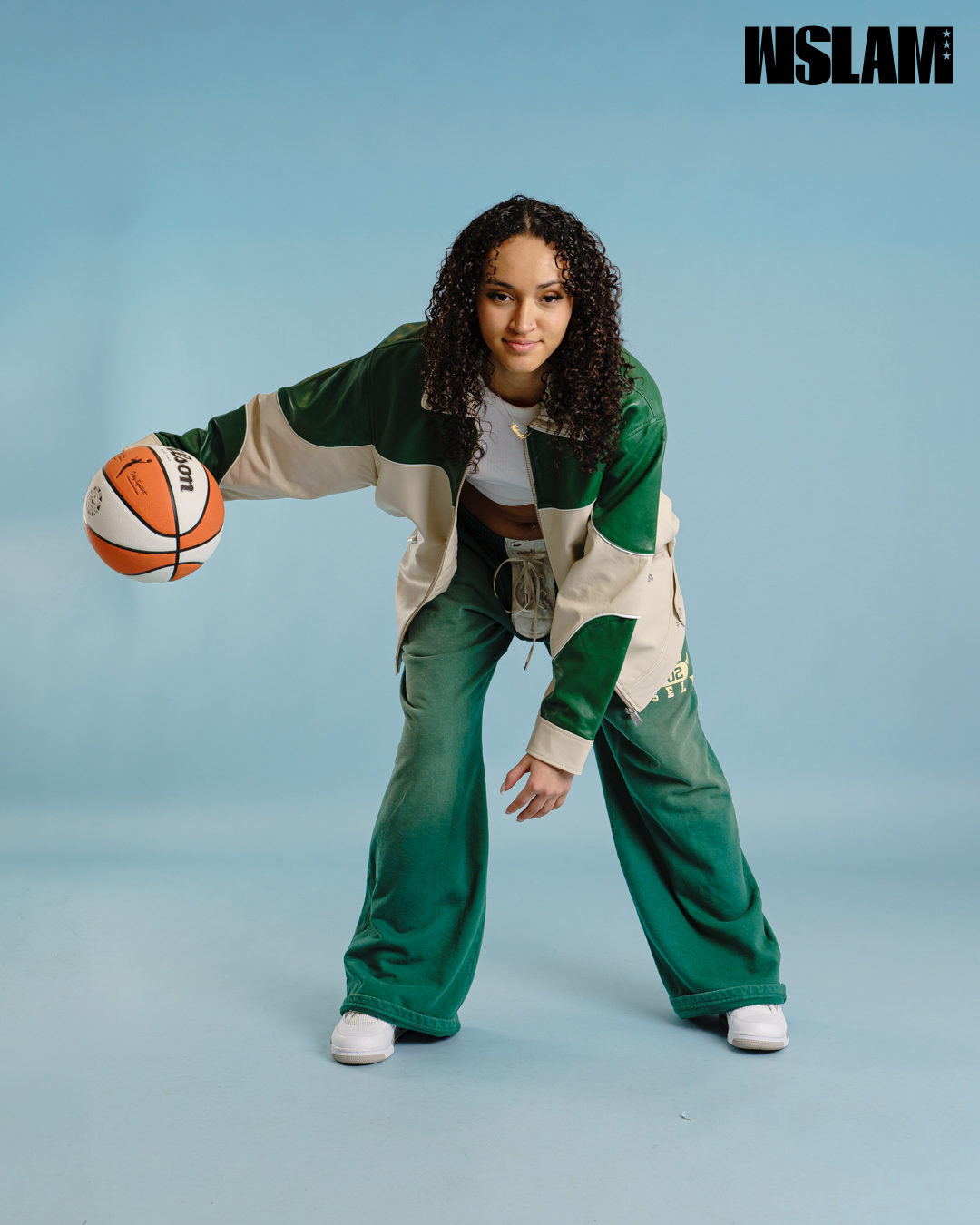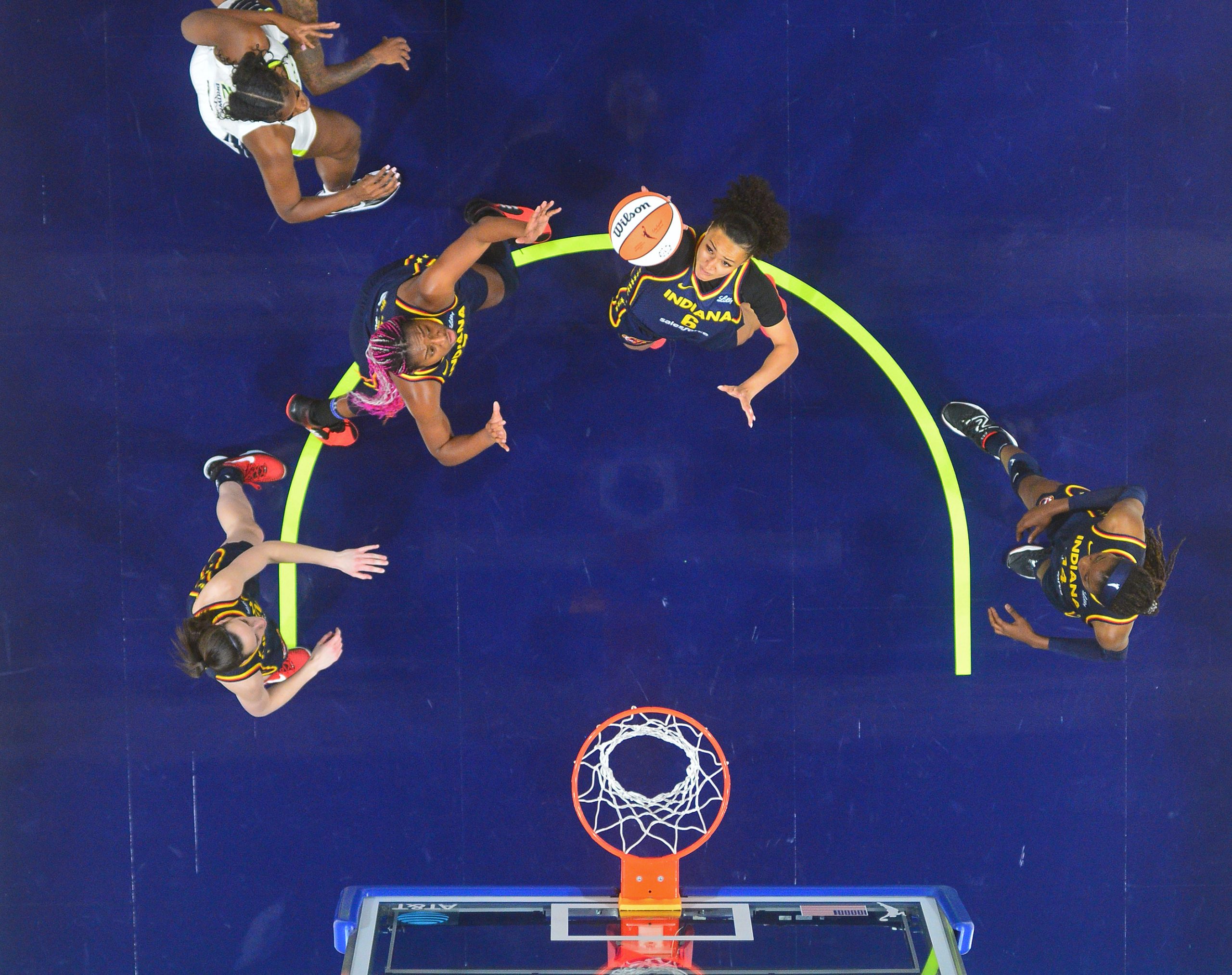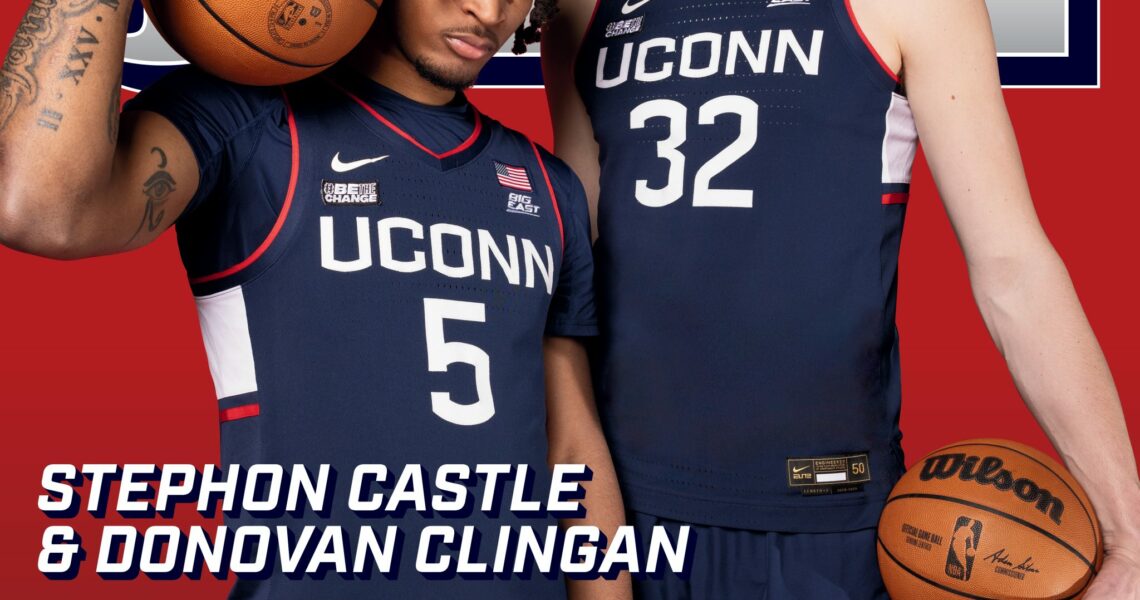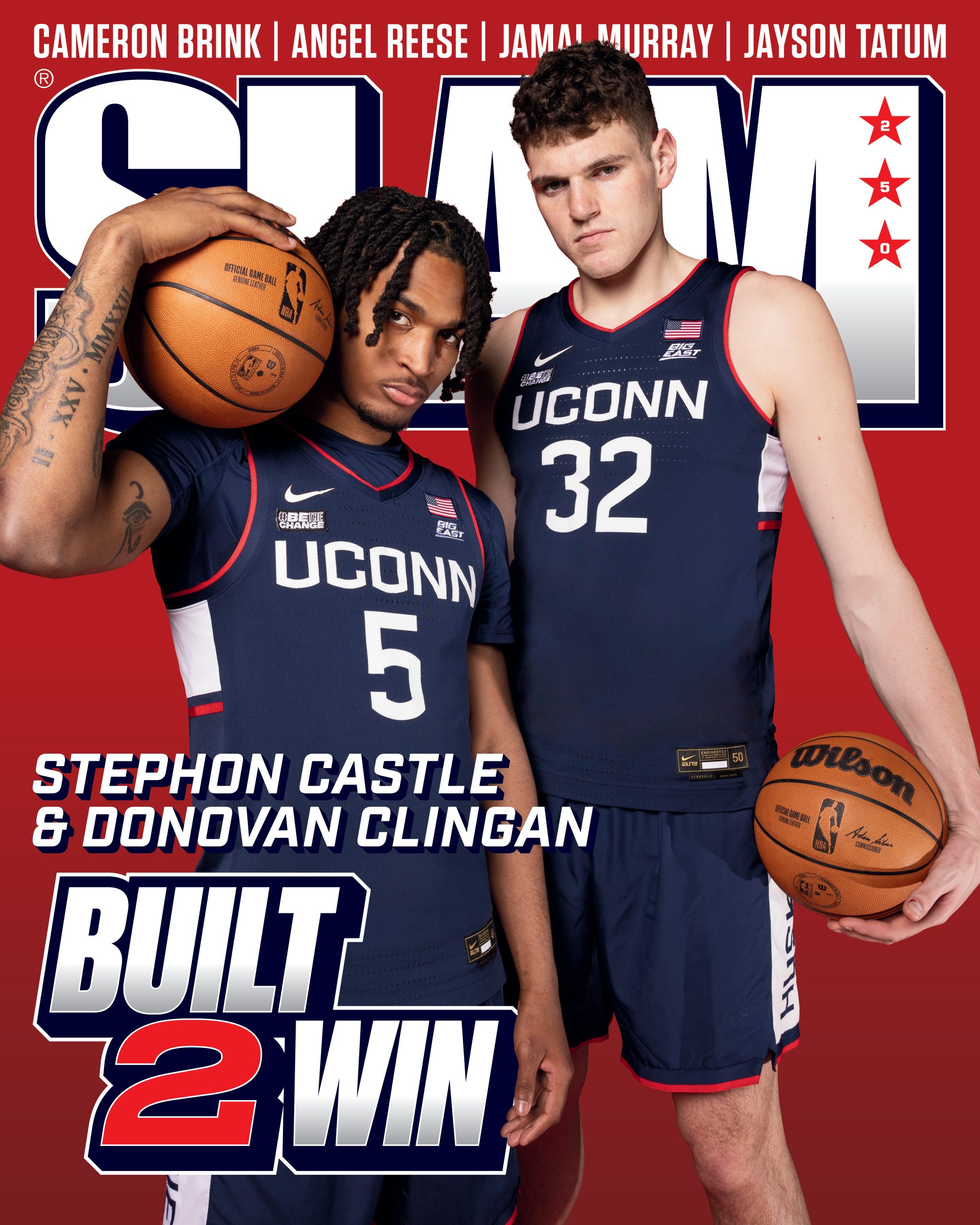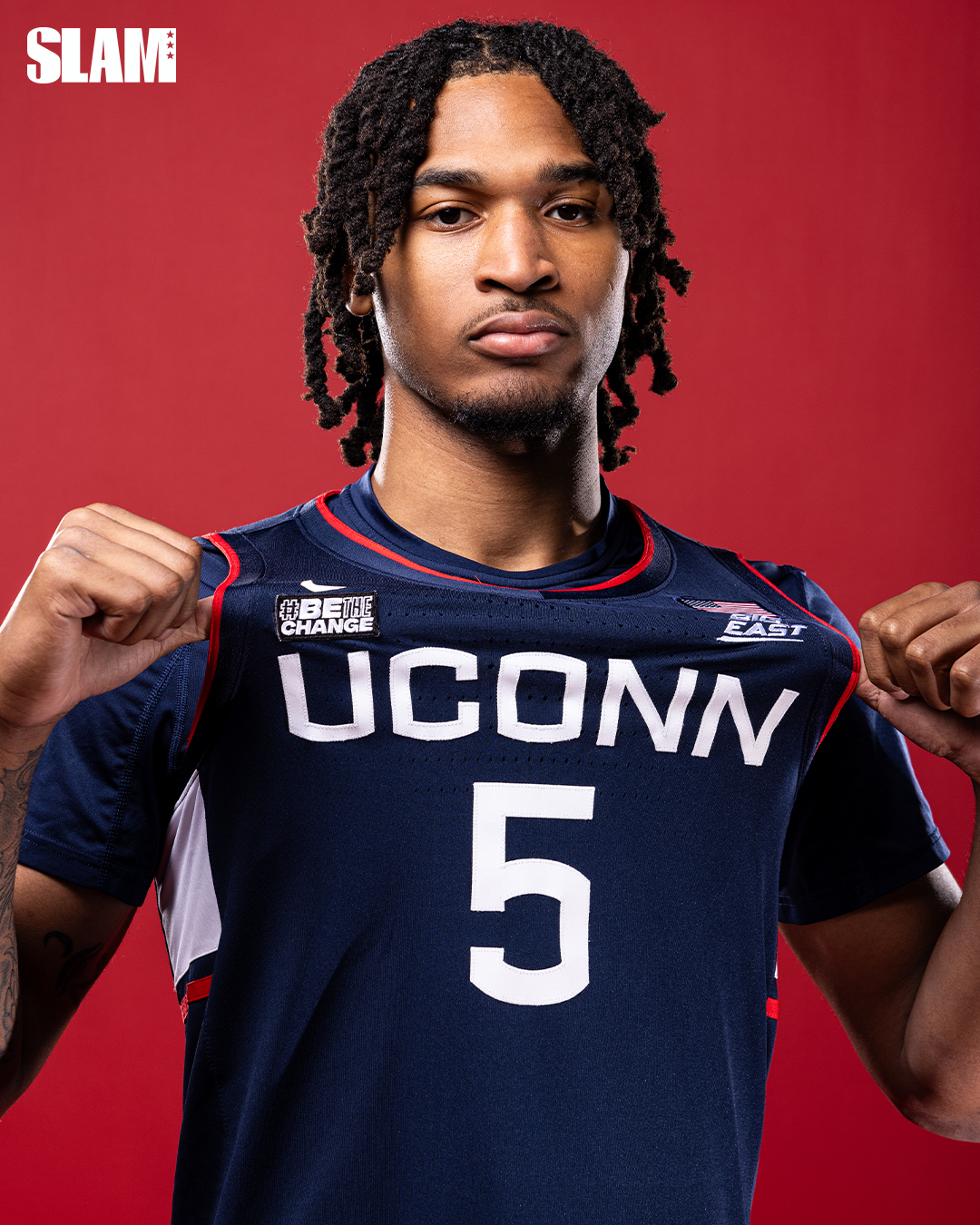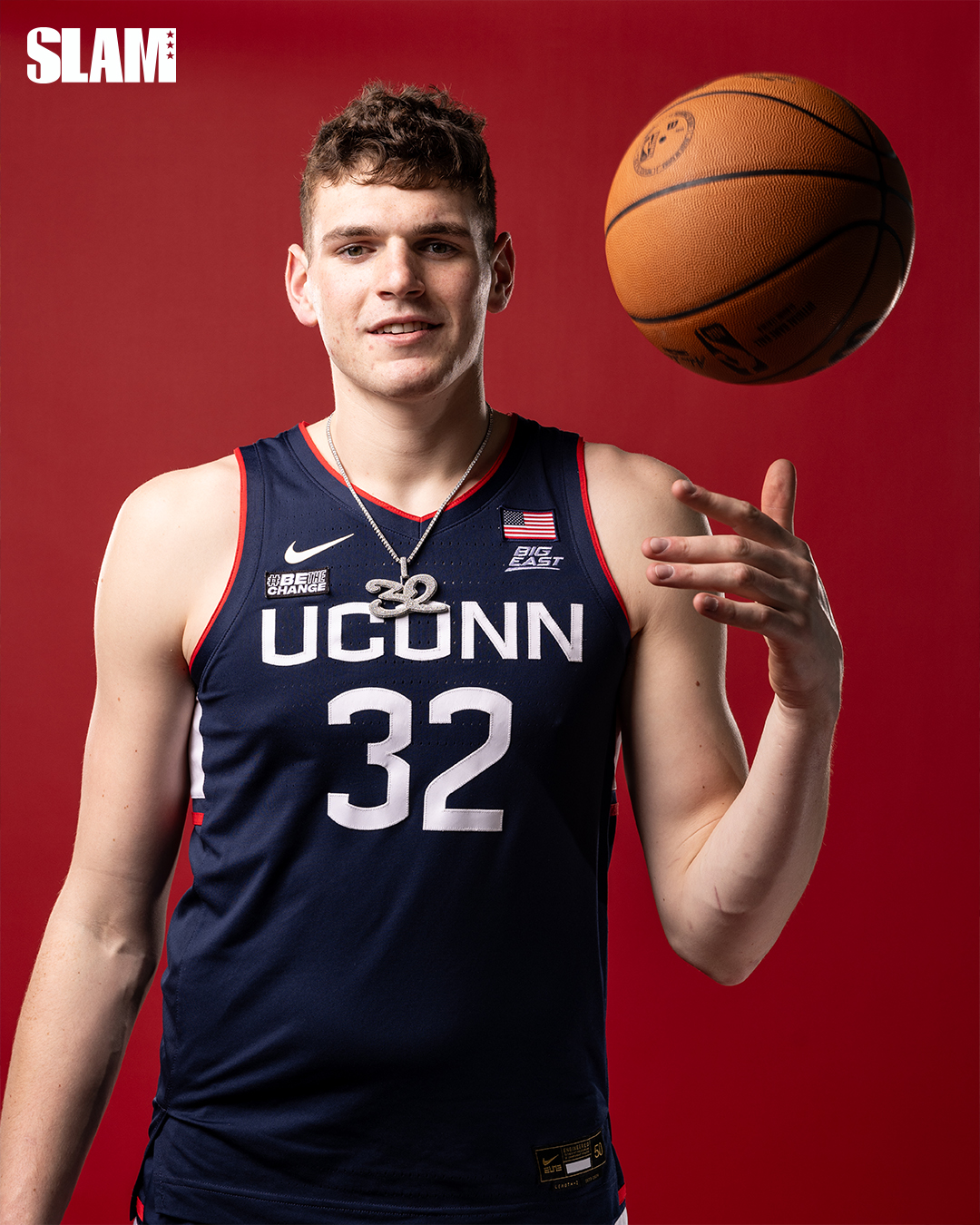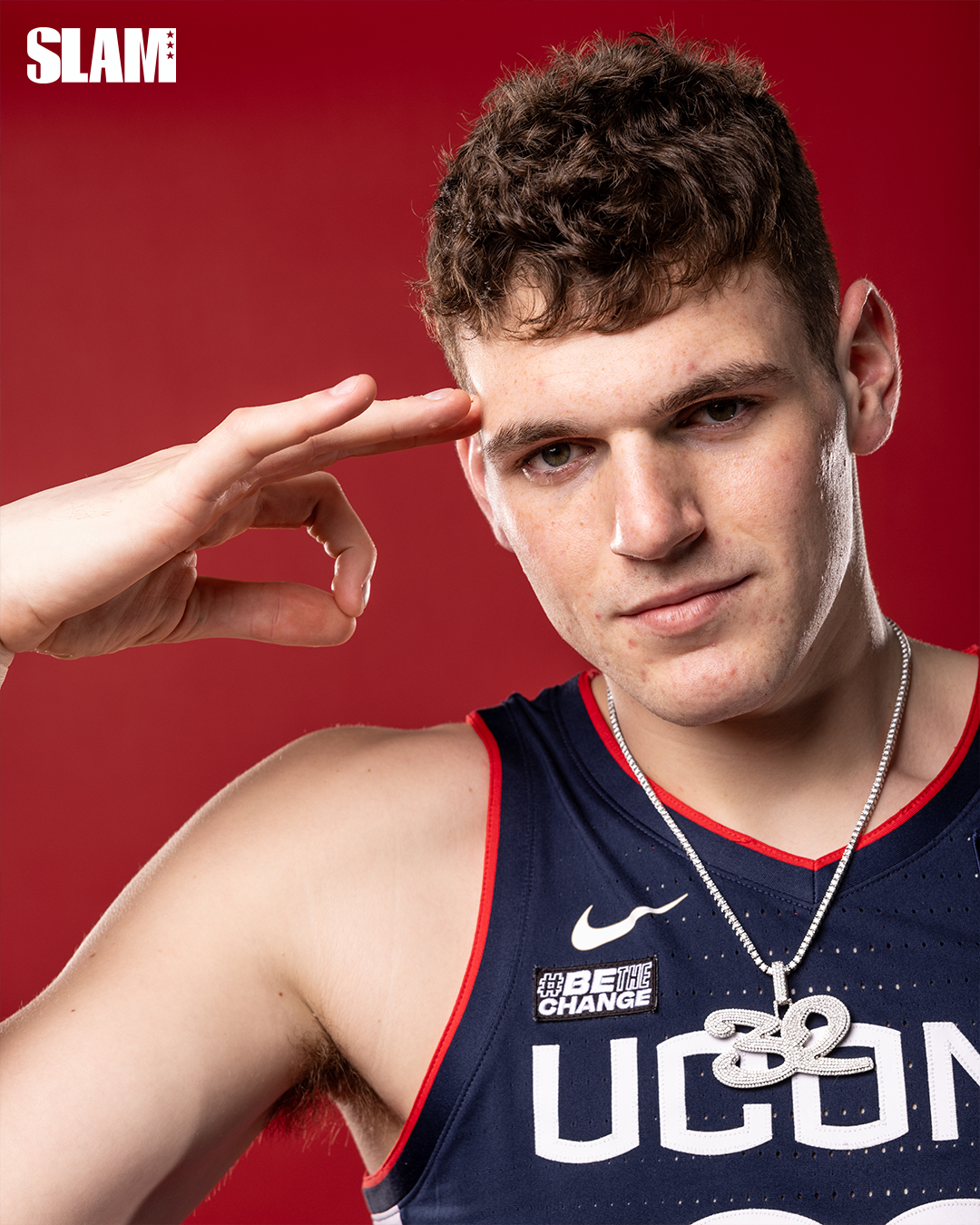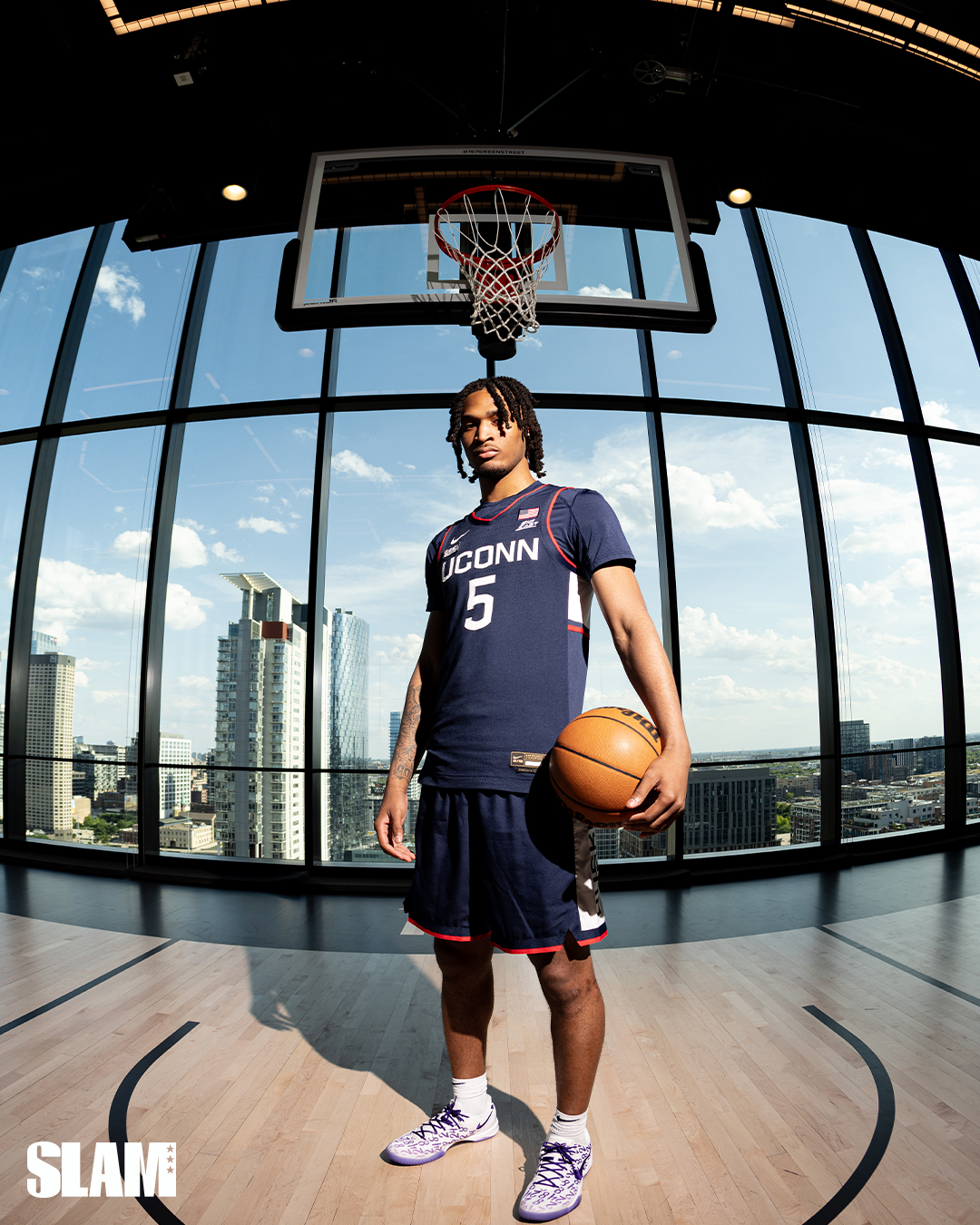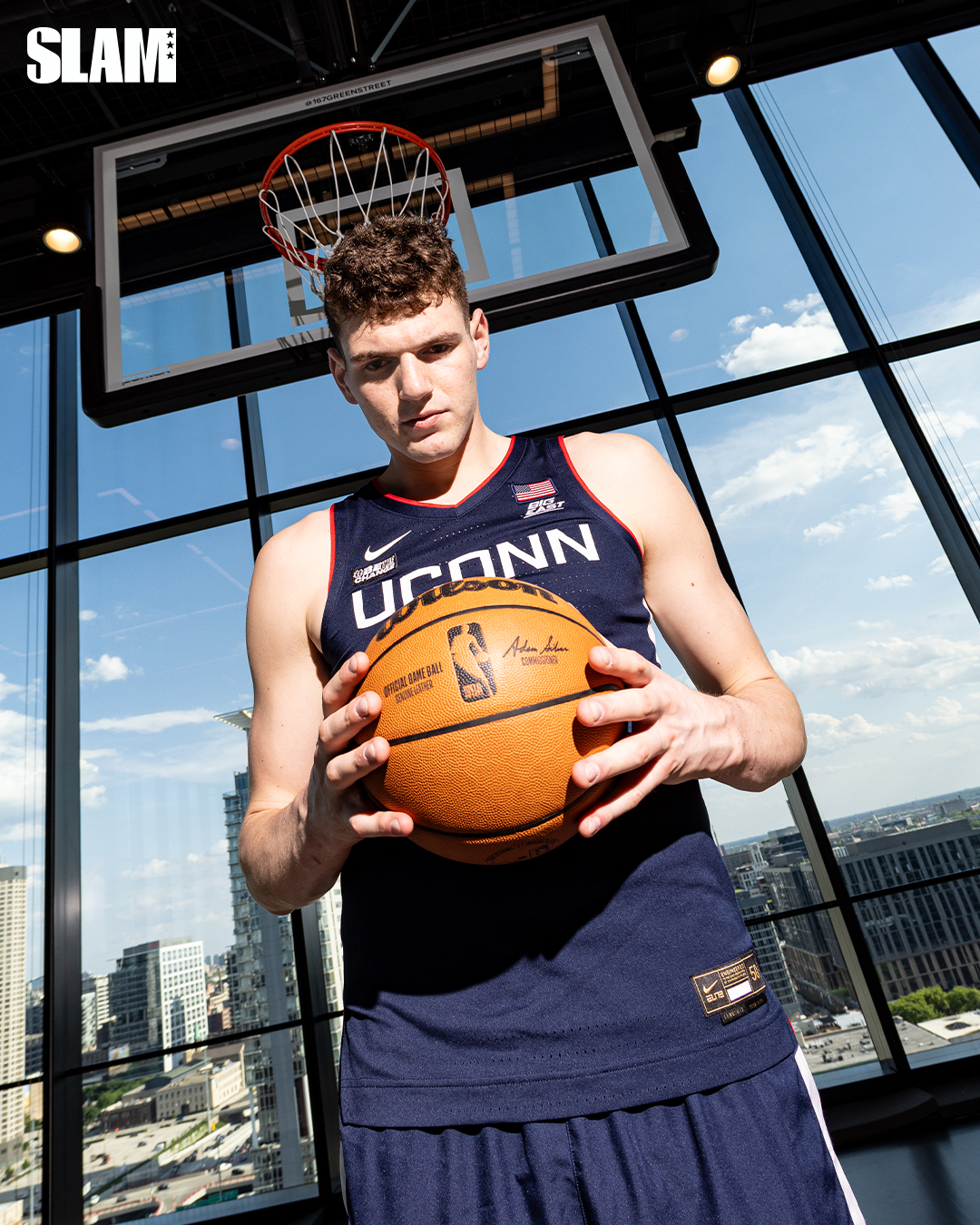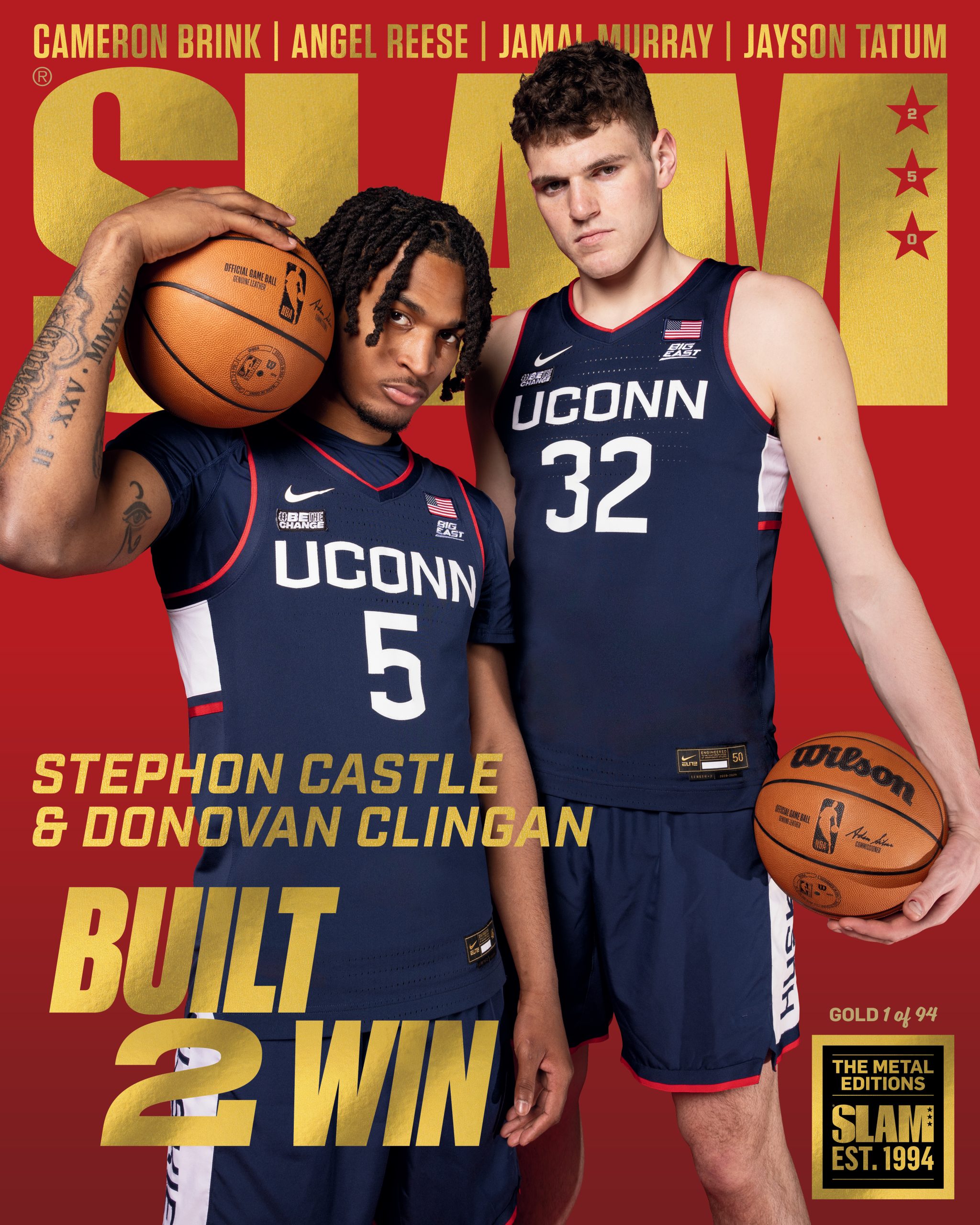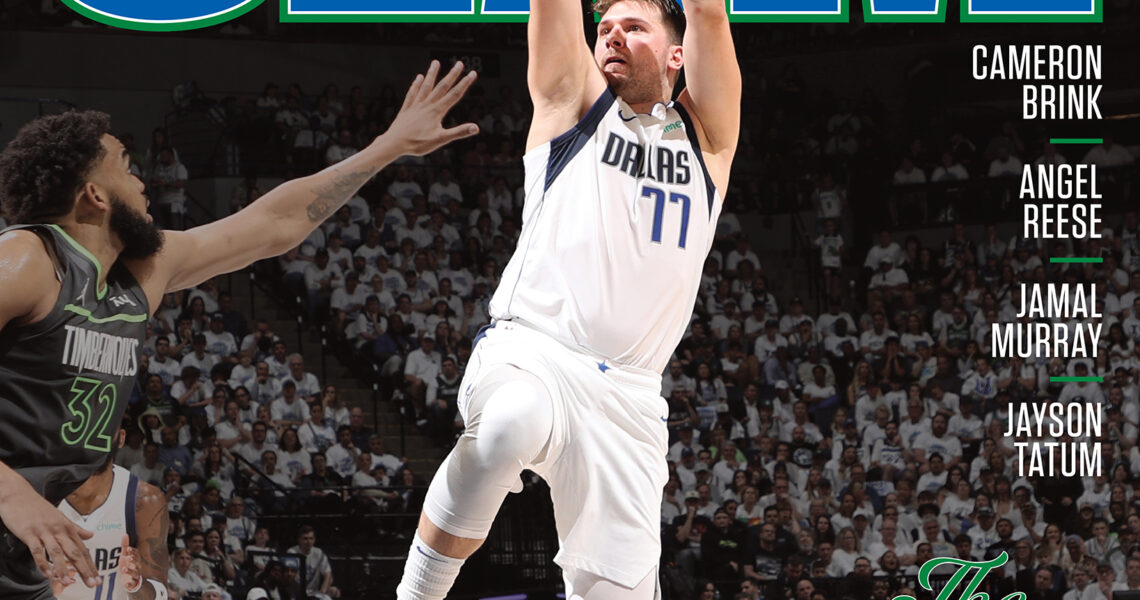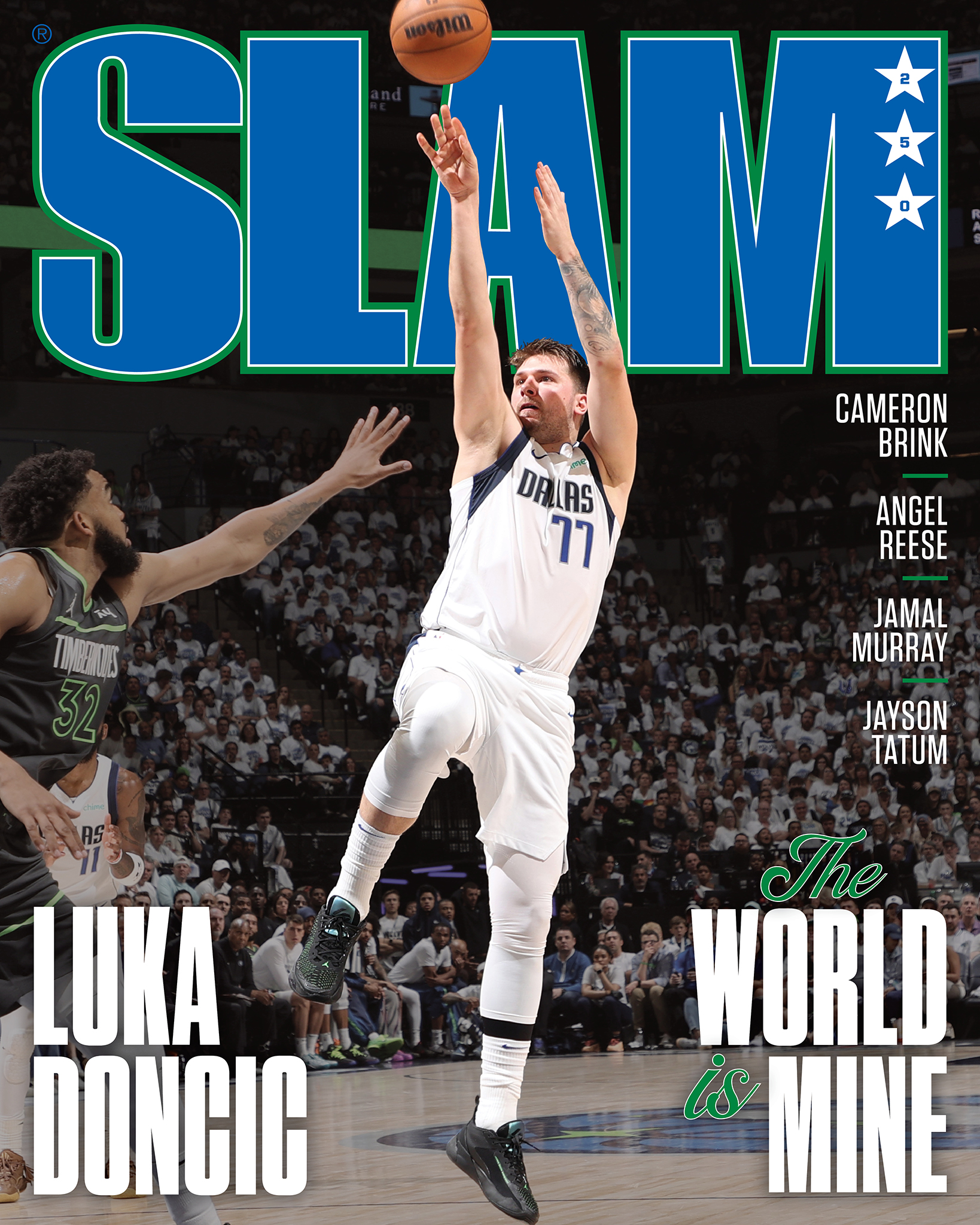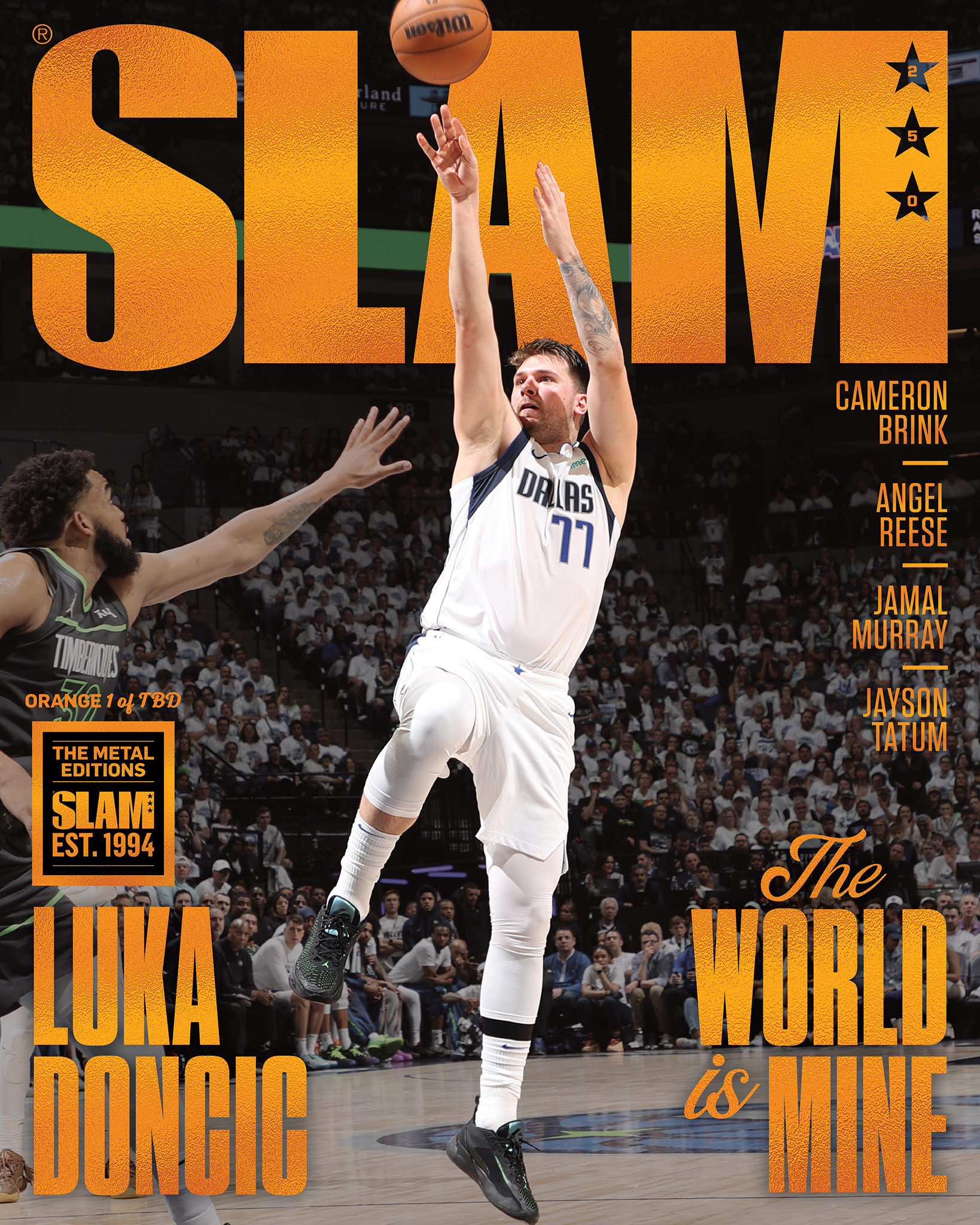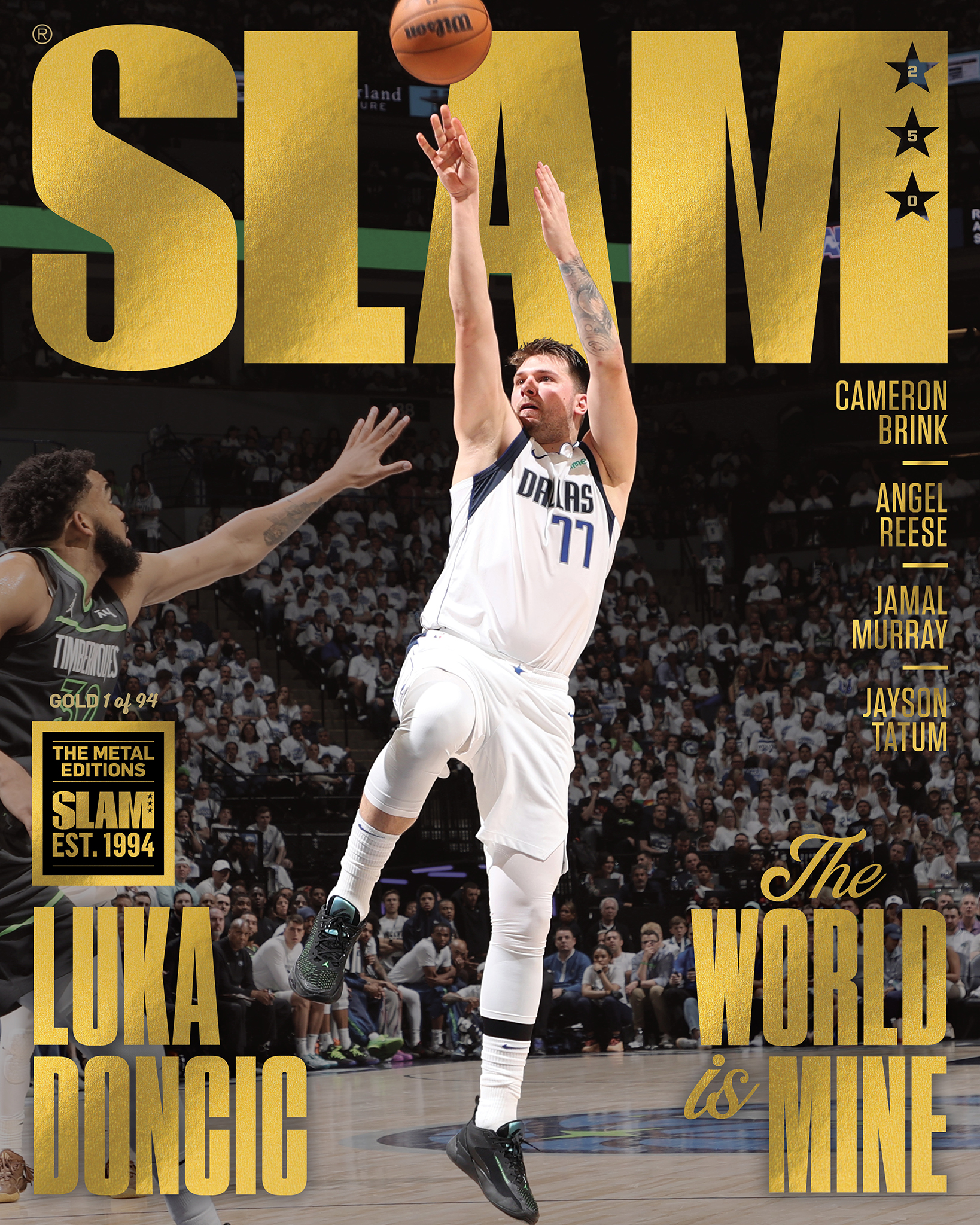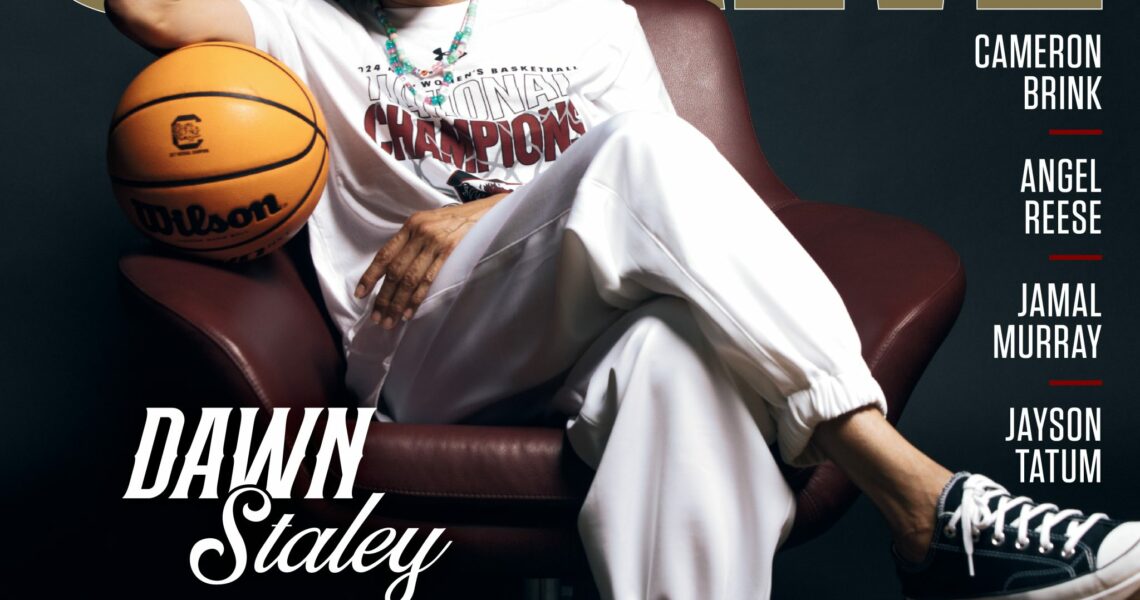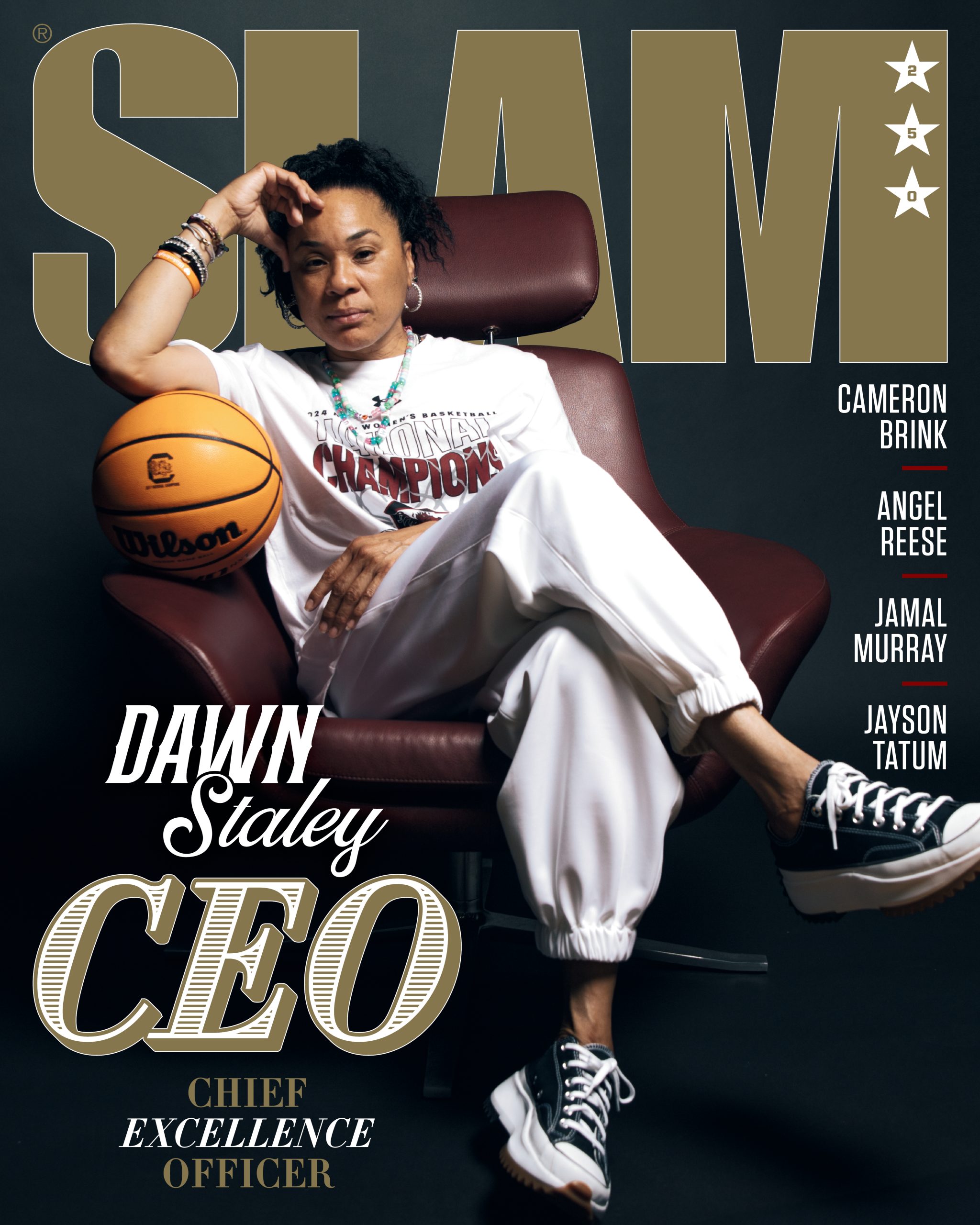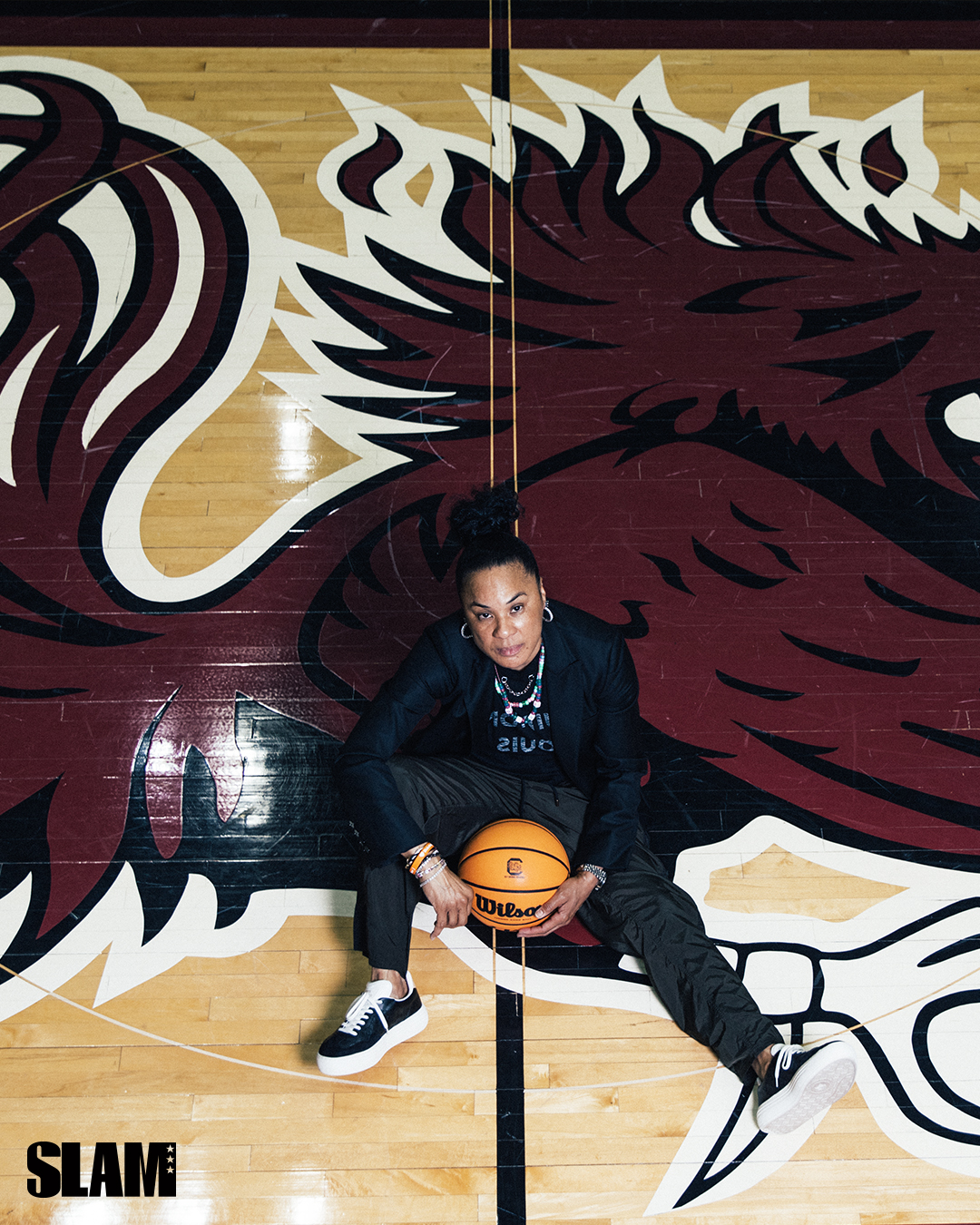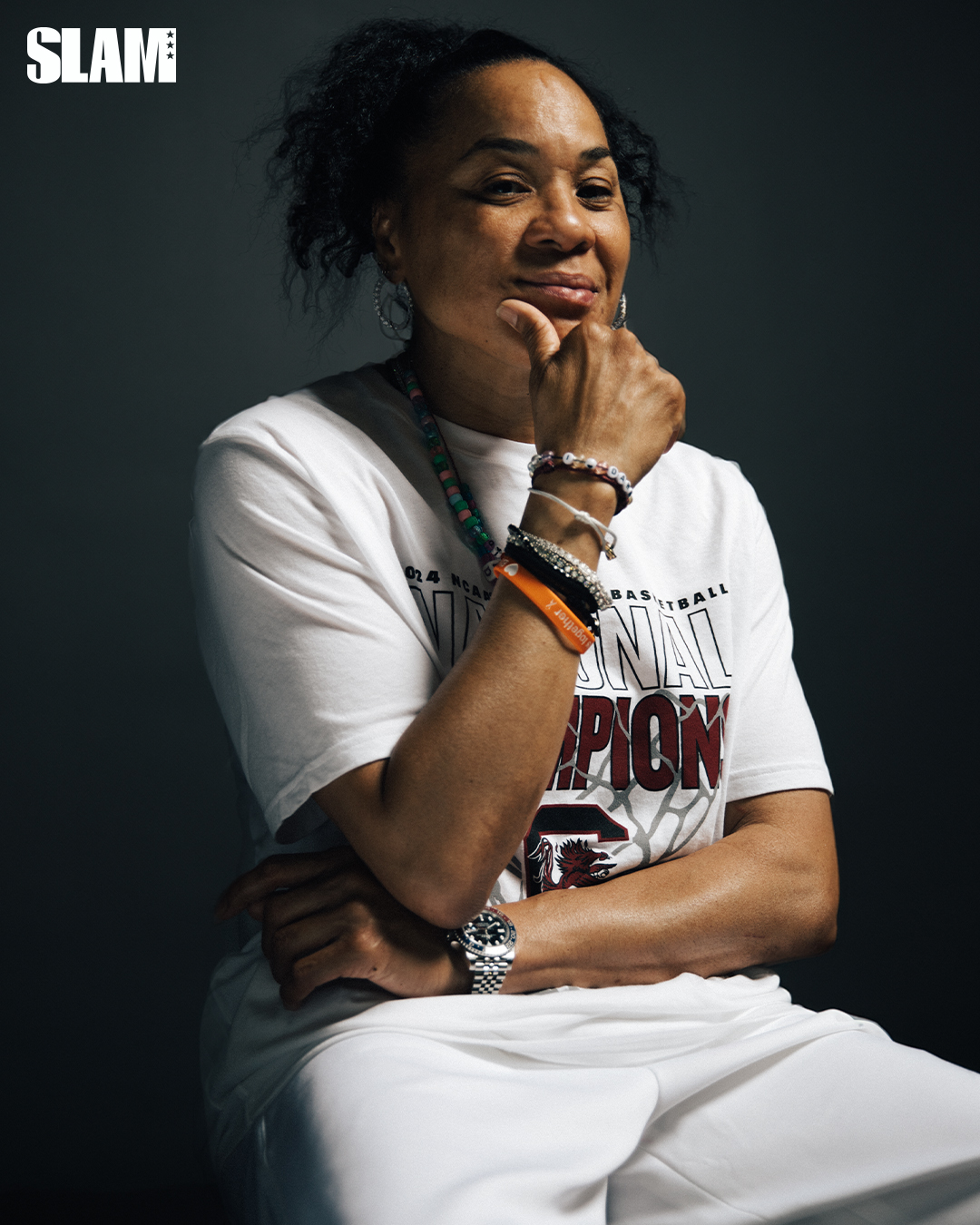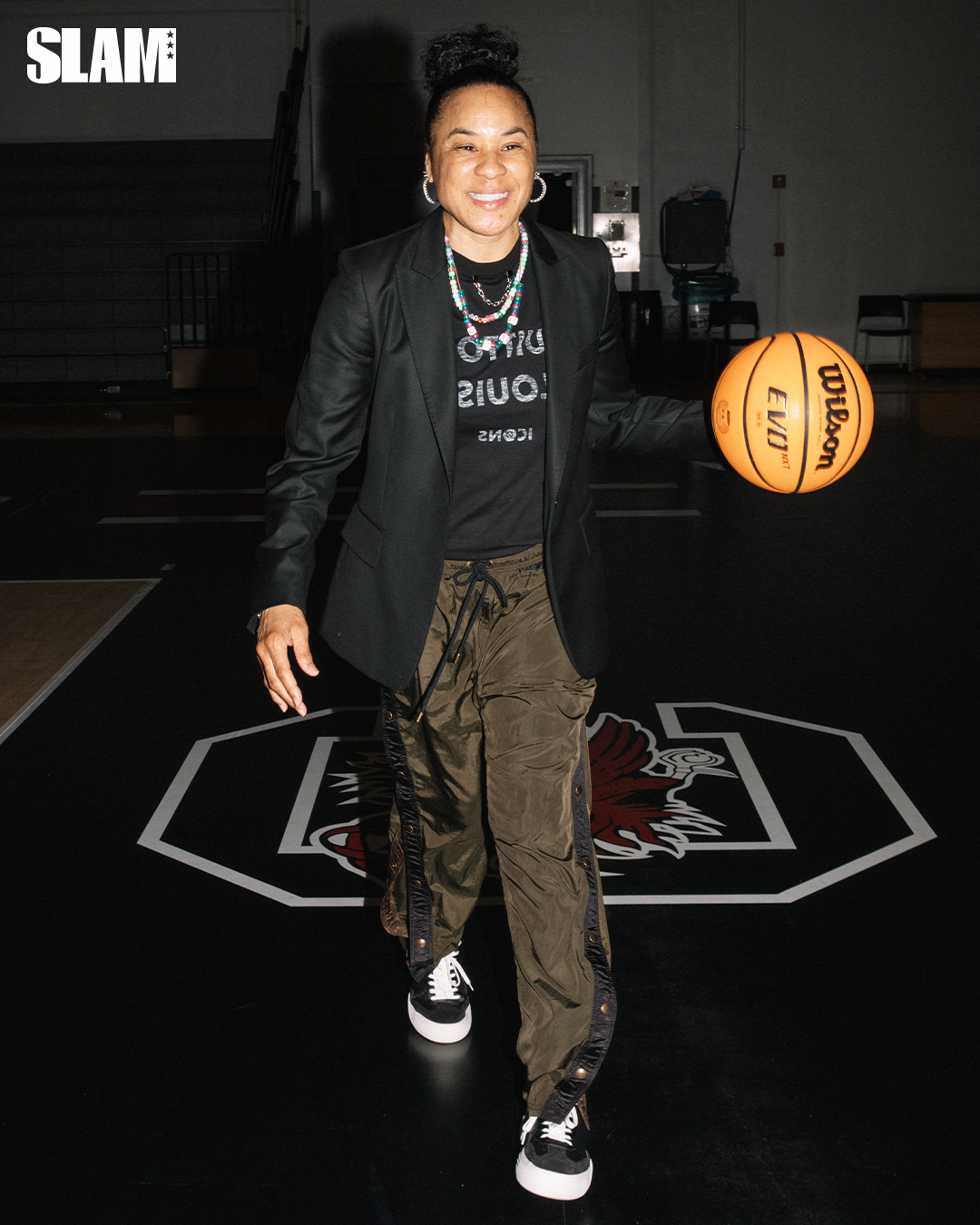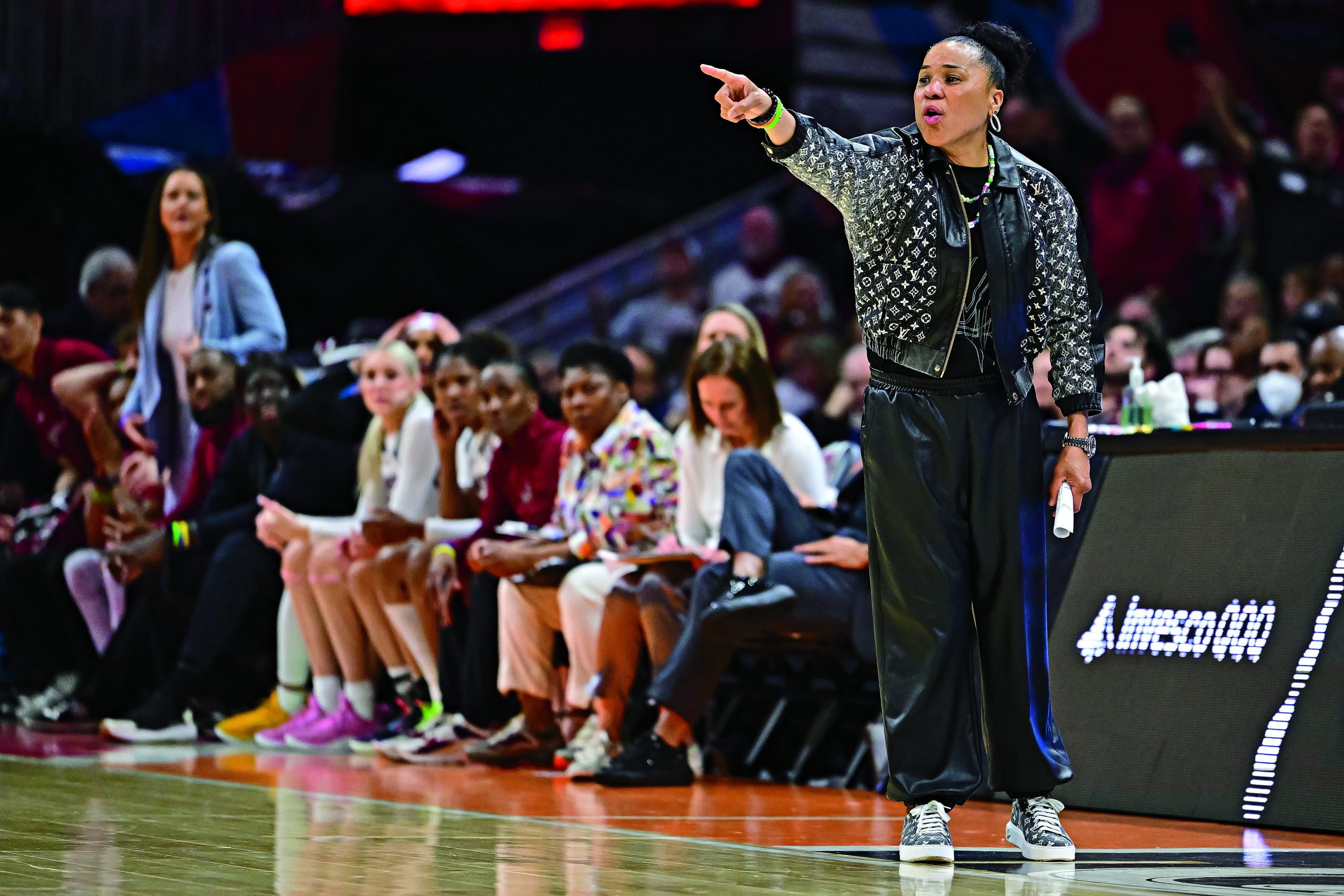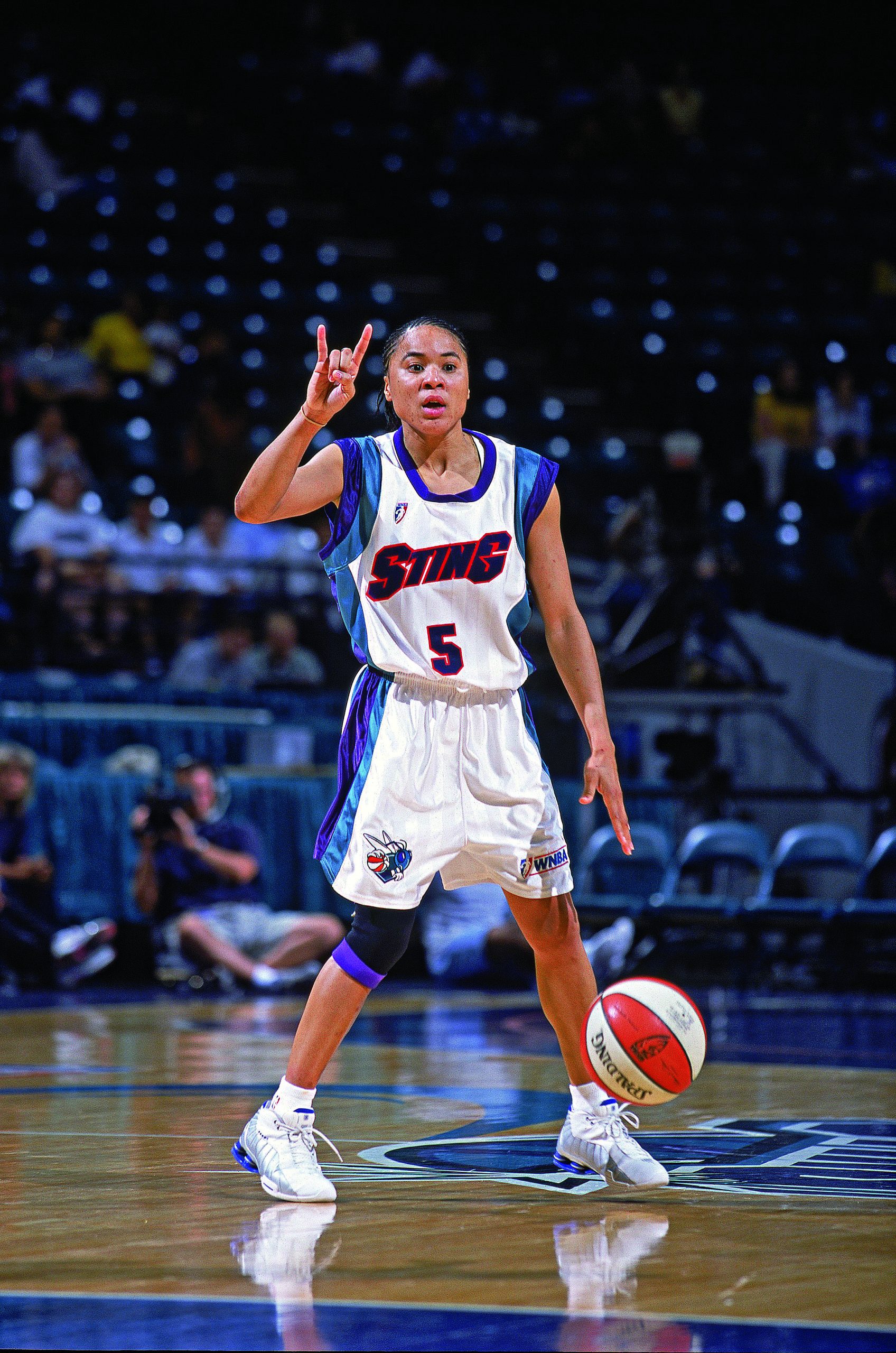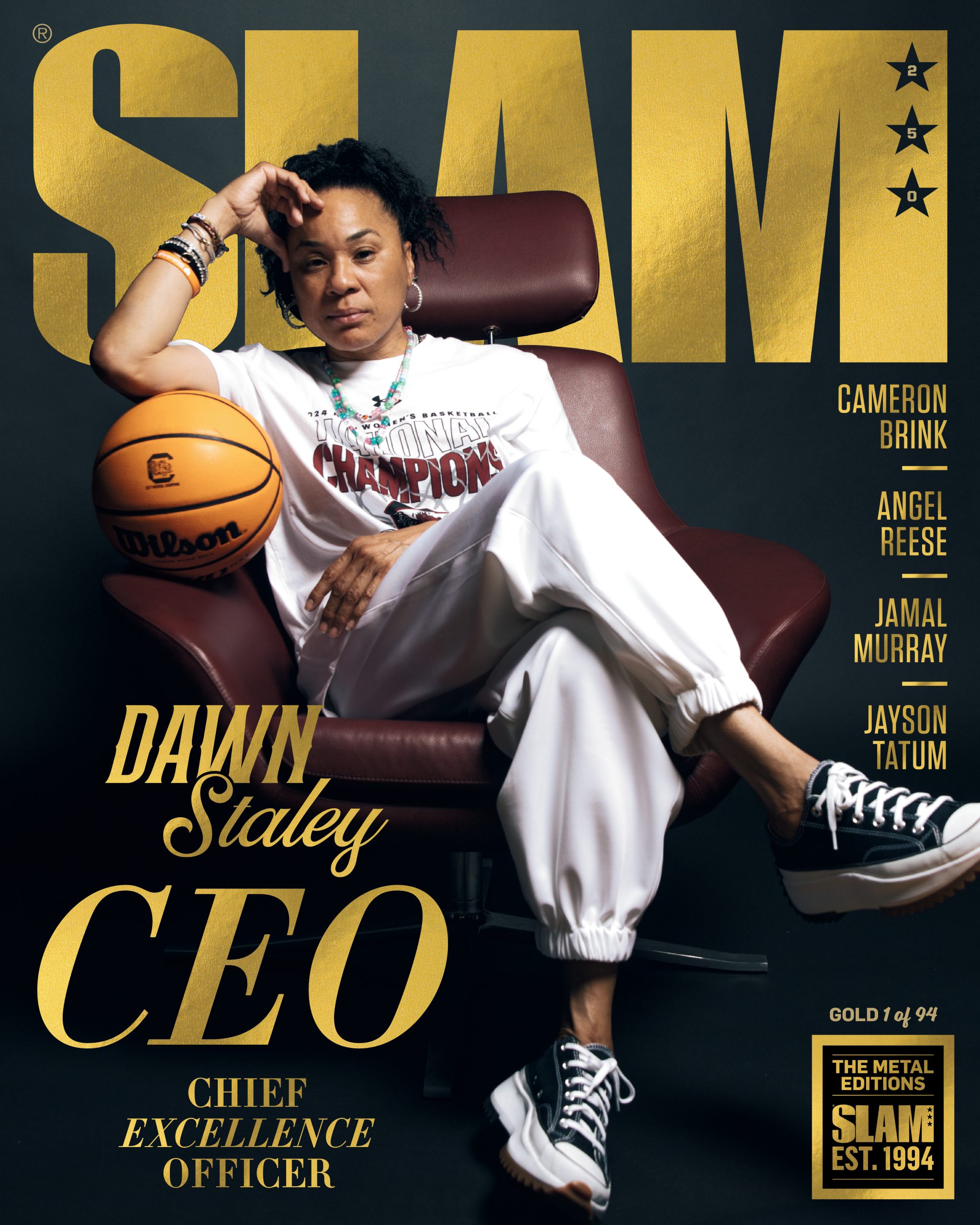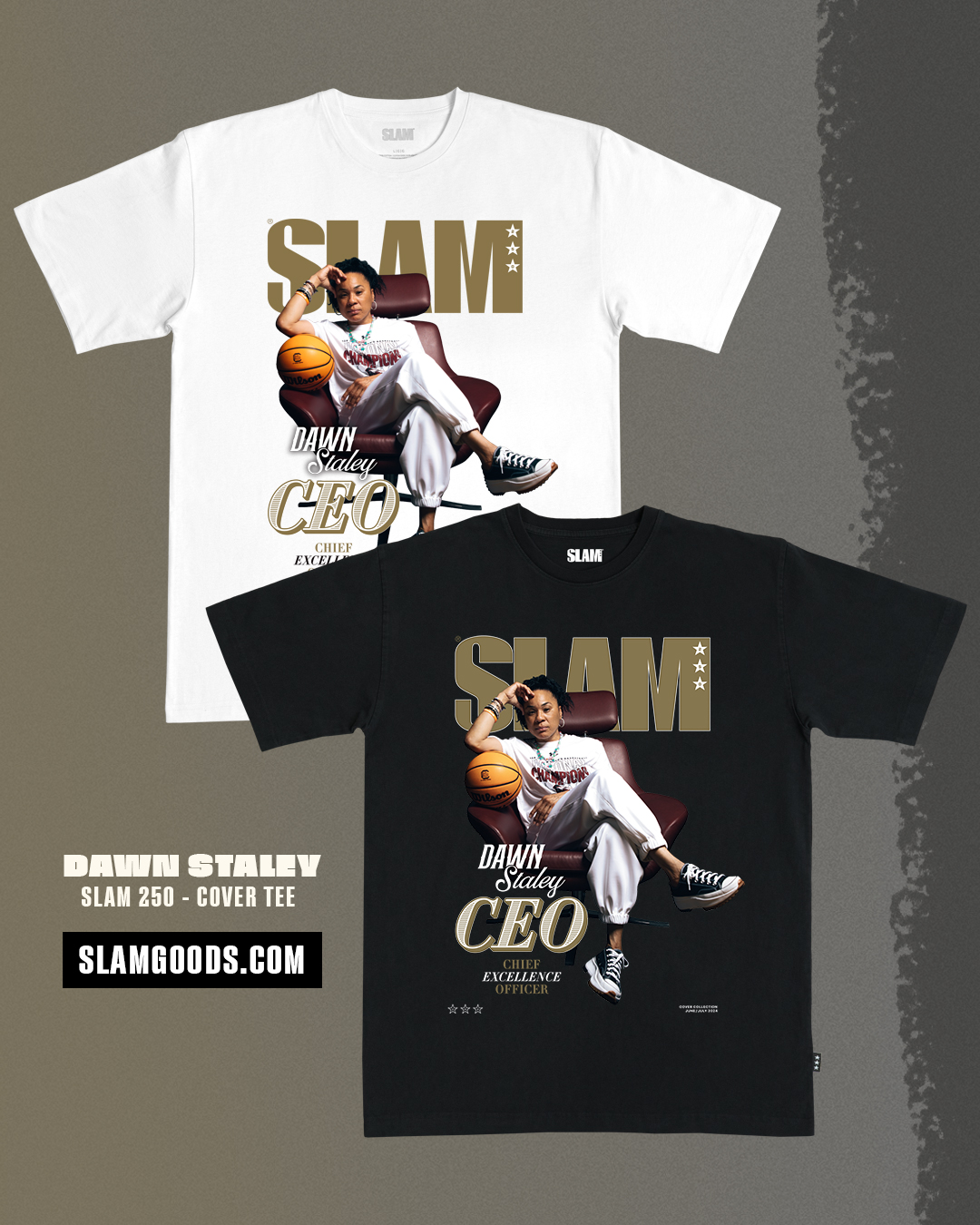One of the greatest feelings in hoops is willing your team to a win almost single-handedly. An overwhelming confidence floods the veins. The pressure, the noise, the eyes of hungry defenders and their clapping hands all seem to slip away. There’s just one thought on repeat: the ball falling through the net. The night is March 8, 2024.
Inside the green-accented gym of Myers Park High School in Charlotte, NC, stands 6-7 senior Isaiah Evans. In front of him, a sea of white t-shirts screaming obscenities. But here’s the thing: Slim—one of his many monikers—was bred for this environment. Hell, he lives for it.
The nation’s No. 13 overall prospect in the Class of 2024 (via 247 Sports) is simply built different. Nights like these are filled with overwhelming expression and talking mad trash to the crowd—only after it’s been dished his way. With his tongue swaying from side to side as he begins to unfurl a contested side-step middie, it’d be a good business decision to just get out of the way. Though there are few—very few—who have been successful doing so.
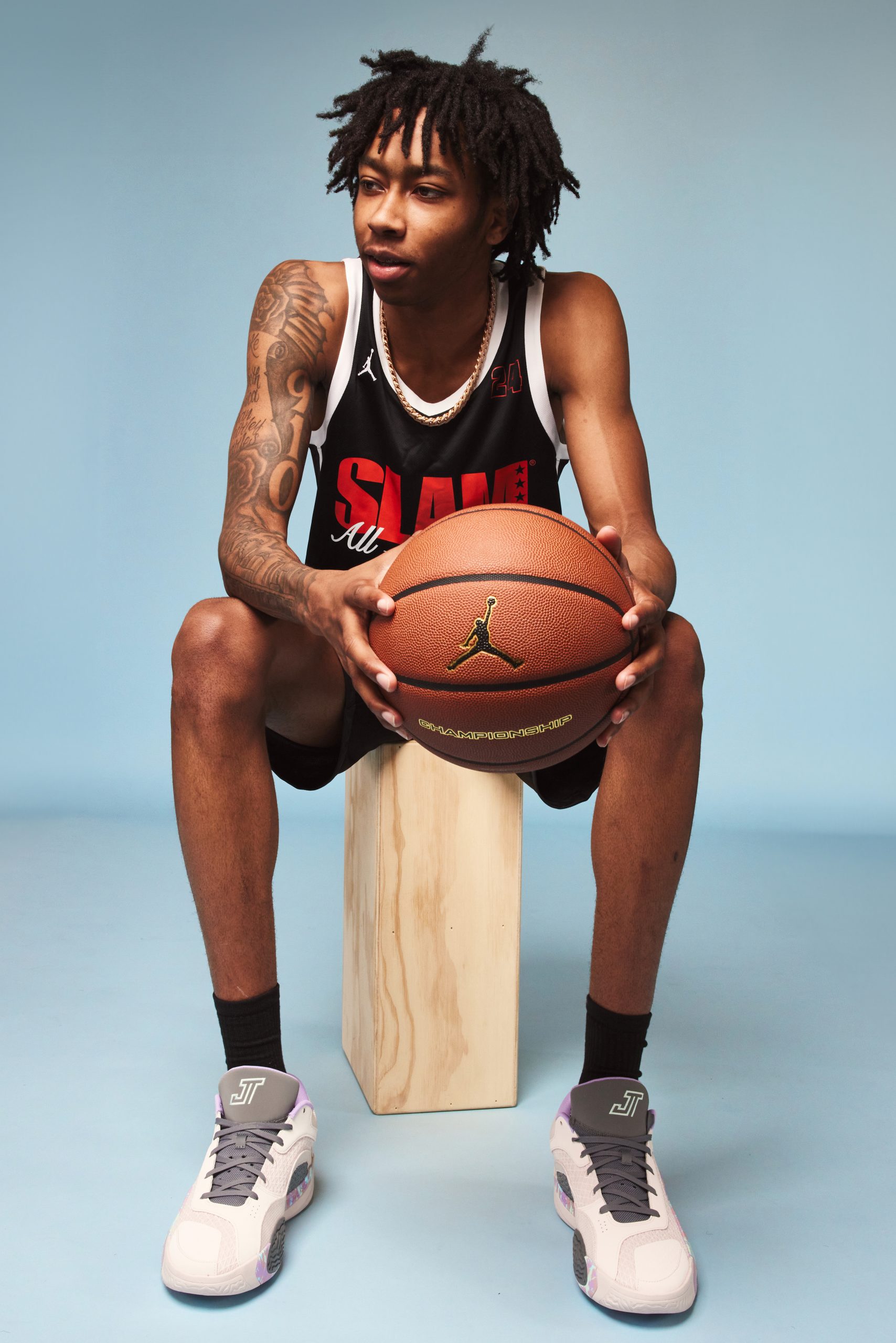
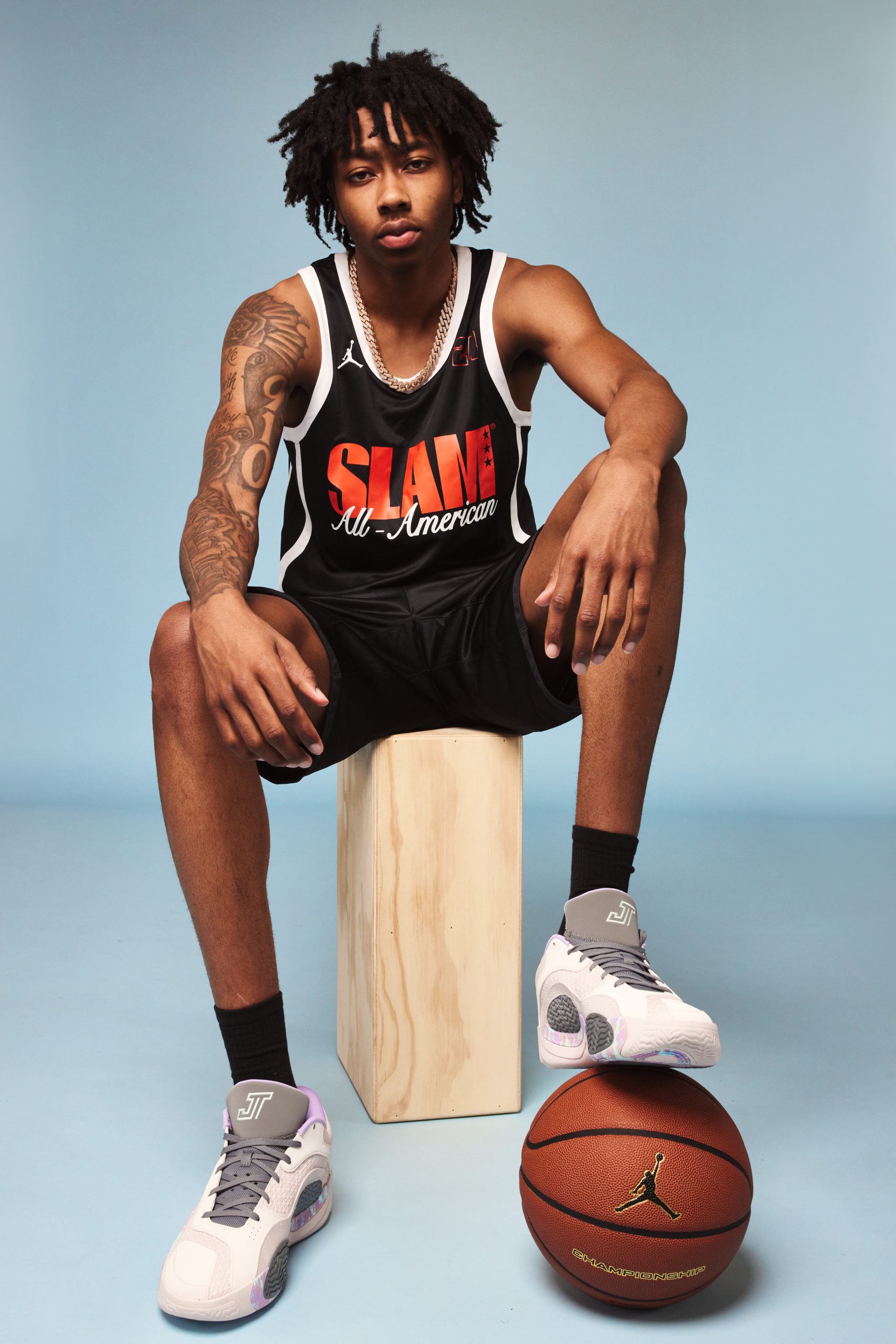
Draped in his royal blue and red North Mecklenburg threads, the future Duke Blue Devil pulled his squad across the finish line against the defending 4A state champions in a tension-filled atmosphere that rivaled the Drake/Kendrick Lamar beef. And yet, Showtime Slim enacted a masterpiece: 48-piece no fries—21 of them in a row during the second half.
“I always had an energetic feel toward me, but I really started getting real active my sophomore year, right after that ninth-grade summer,” Evans says. “I was really taking it personal.”
After being placed on the JV team during his freshman year, Evans spent the entirety of the following summer grinding his way into the varsity rotation as a sophomore. In Slim’s words, “It was time to activate.” After flipping the switch two years ago, the 18-year-old forward now holds the title of one of the most lethal scorers in his class. Gatorade State Player of the Year in North Carolina, McDonald’s All-American, reigning state champion and SLAM All-American—the list of accolades has only cemented his legacy.
It was just over a month into his sophomore campaign before the major college offers began to trickle in, transitioning quickly into a downpour. While his peers began to stack themselves on prep school rosters, Slim chose to stay home, finishing the last of his high school days in the city that raised him.
“Once I had gotten those first couple of offers [my] sophomore year, there wasn’t really any reason to leave,” Evans says. “You’re playing a national schedule every year, you’re going to these tournaments with these top teams, so I’m going to gain exposure. And I feel like I’m getting better year by year, so what’s the point in leaving?”
After pouring in 23 points—including four treys—Evans’ journey in his hometown was cemented with an undefeated season and the 2024 state championship. While visions of Cameron Indoor and hostile enemy crowds are in the near future, Evans knows he’ll miss the memories of those lively Friday nights when he bent the game to his will. But there’s still one solvent, a memento of his legacy.
After igniting North Carolina’s historic basketball community as its latest homegrown star, Evans was cemented in North Mecklenburg history by having his jersey retired at the end of April. He let us in on the honor when we spoke.
“A lot of people don’t know this, but I’m going to be the first and last person to wear No. 0 [at North Meck]. It really meant a lot to me.”
Portraits by Luke Schlaifer.
The post Future Duke Blue Devil and SLAM HS All-American Isaiah Evans Talks Staying Home for His Senior Season, Confidence and Being a State Champion appeared first on SLAM.

